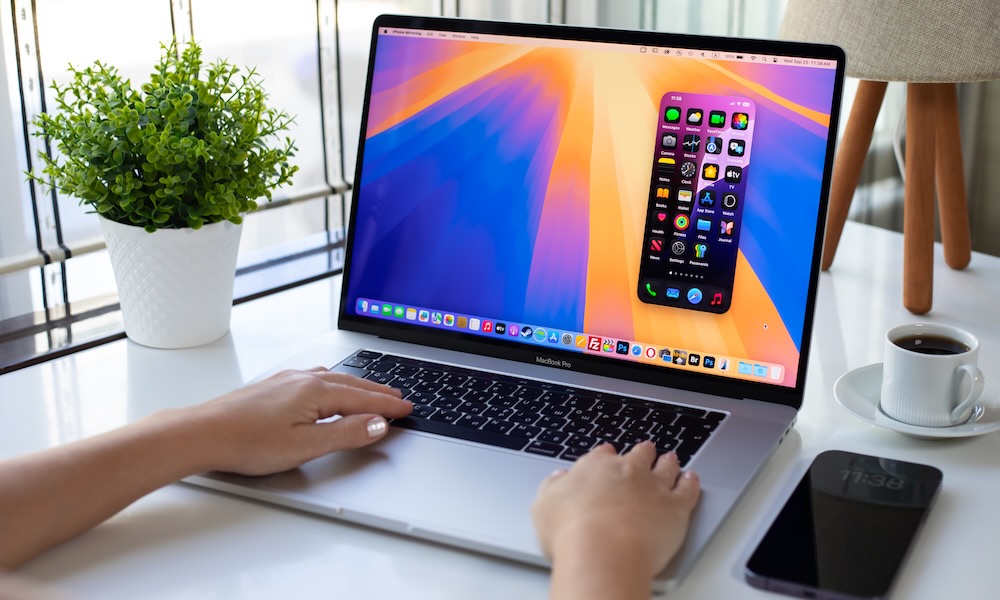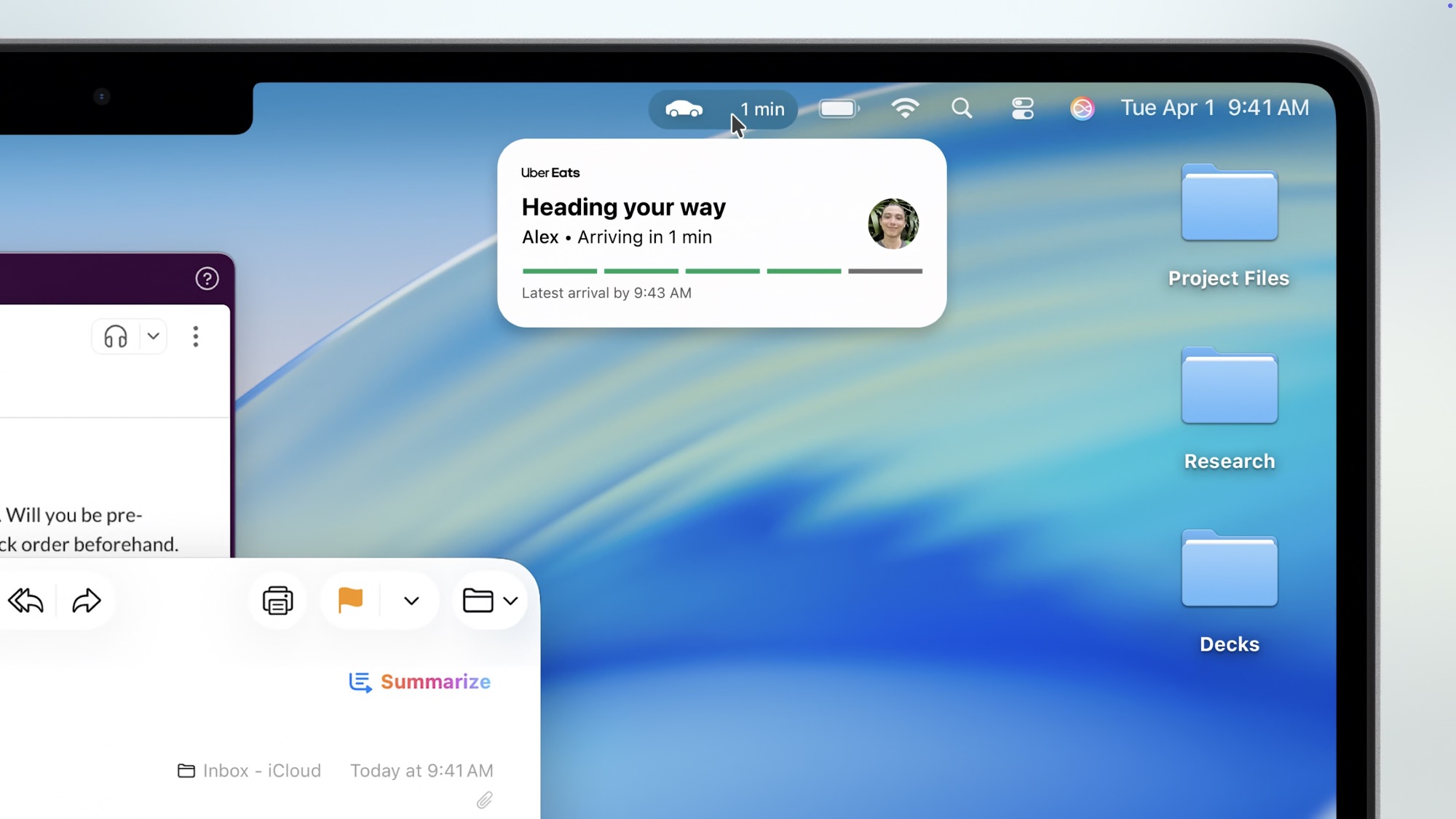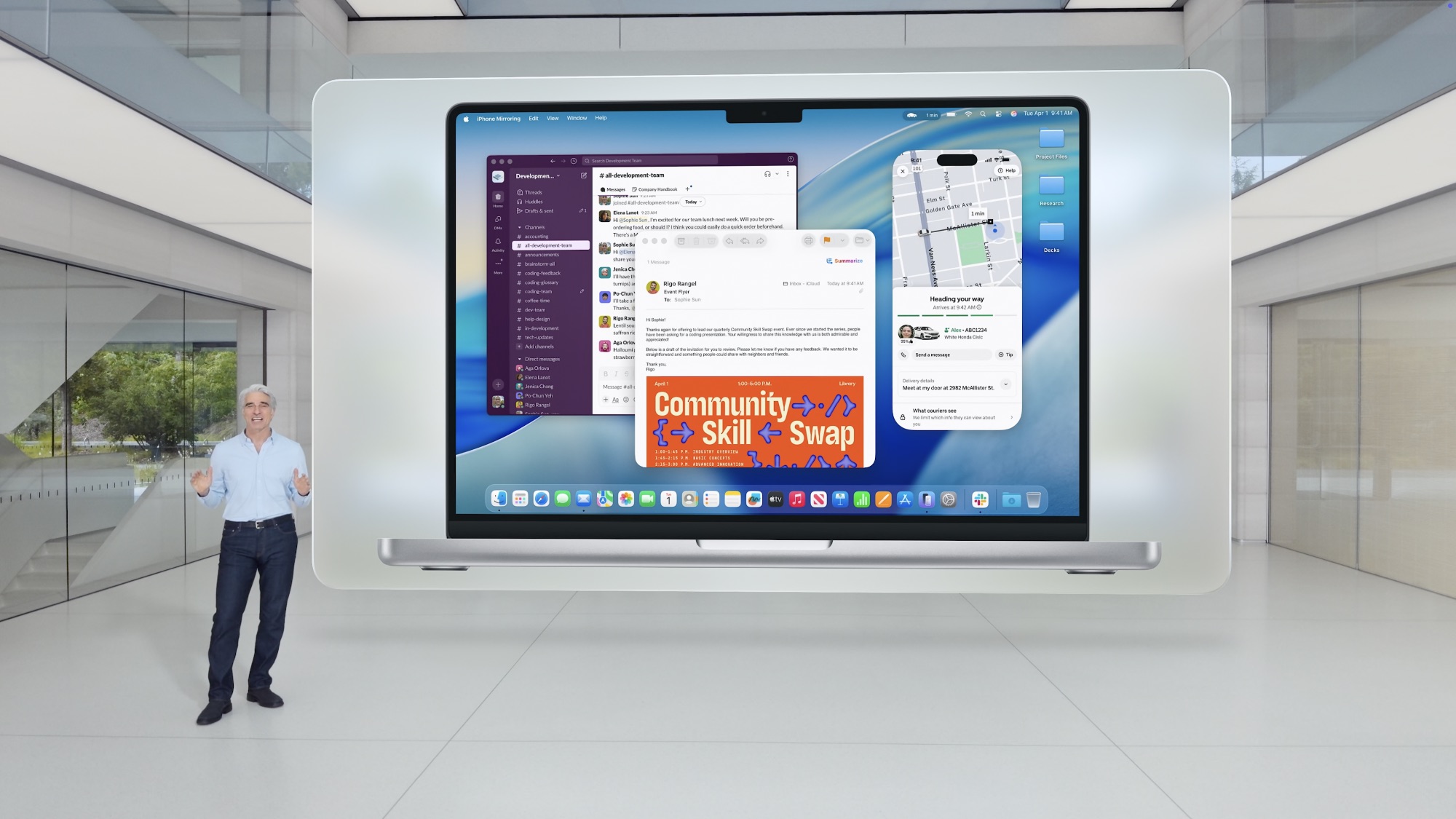iPhone Mirroring Still Isn’t Coming to the EU in macOS Tahoe
 enPhoto / Adobe Stock
enPhoto / Adobe Stock
Toggle Dark Mode
Apple is bringing some nice enhancements to iPhone Screen Mirroring in macOS Tahoe 26 this year, but sadly, folks in the European Union will still be missing out on this handy feature — and even some of the new things that come with it, like Live Activities.
If you haven’t tried it yet, iPhone Mirroring is a very handy feature introduced in iOS 18 and macOS Sequoia last year that lets you effectively take control of your iPhone from your Mac, even while it’s in your pocket or sitting in the next room. Despite the use of the word “mirroring,” this happens while your iPhone remains safely locked so nobody else can get at your iPhone or see what you’re doing on it.
This is tied to a new notification feature that Apple added last year that not only lets you see your iPhone notifications on your Mac, but also respond to them. Clicking on a notification from your iPhone will automatically open iPhone Mirroring and take you right into the appropriate app, just like it would if you tapped it on your iPhone.
That’s also where Live Activities come in. With macOS Tahoe, you’ll be able to see any Live Activity from your iPhone presented on your Mac, so you won’t need to keep your iPhone handy to know when your Uber Eats delivery is showing up, or check the latest score from your favorite team for a game in progress. However, the relationship between Live Activities and screen mirroring is likely why these won’t be part of the package for European users.

Last year, Apple pointedly excluded Apple Intelligence, iPhone Mirroring, and SharePlay Screen Sharing from devices in the European Union due to the complexities of the EU’s Digital Markets Act (DMA). This is the same legislation that forced Apple to open up app distribution in Europe, and is now pushing Apple to open up features like AirPlay, AirDrop, and notifications to third-party device makers.
While Apple hasn’t gone into any detail on how EU regulations might affect these features, it’s not hard to fill in the blanks. iPhone Mirroring and SharePlay Screen Sharing only work between Apple devices. That lets Apple control all the privacy and security aspects of these features on both ends. With the EU already pushing for things like AirDrop to be open to other platforms, Apple could likely find itself faced with a requirement to let Windows, Linux, Android, and others fully participate in iPhone Mirroring. The easiest way to avoid being forced to do that is to exclude these features from the EU.

Apple eventually figured out how to fit Apple Intelligence into the EU’s regulatory framework, but the other two features remained missing even as Apple’s AI features landed on European shores. We weren’t holding our breath for iOS 26 and macOS Tahoe to change this. However, now Apple has confirmed that it’s still holding these features back in the European Union due to the continuing regulatory uncertainties.
In short, it looks like little has changed since last year when these features first rolled out. French site Numerama was among the first to report after last year’s Worldwide Developers Conference (WWDC) that these features wouldn’t be coming to the EU. While attending WWDC25, it asked several Apple executives whether that would change in iOS 26, and was told that Apple “still has too many doubts about how the European Union might judge its capabilities” (Translated from French).
According to Numerama’s Nicolas Lellouche, the issue might not merely be one of openness. While European regulators consider the iPhone and iPad to be “gatekeeper” devices under the terms of the DMA, the Mac is not because of its significantly smaller user base. Lellouche posits that Apple might be concerned that if the Mac can emulate iOS through features like mirroring, screen sharing, and Live Activities, that might cause it to qualify as a “gatekeeper,” bringing it under the same regulatory umbrella as the iPhone and iPad.







